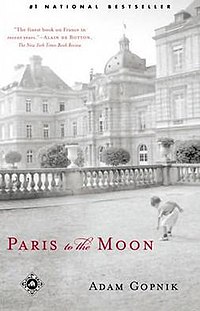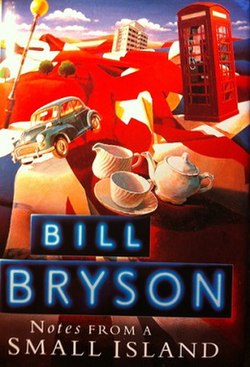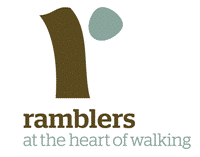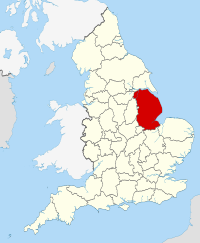(picture courtesy of the Center for Disease Control)
All my students, if they learn anything at all in my courses--which they usually don't--is that I am obsessed with the impending Zombie apocalypse.
Don't laugh folks, it's coming.
So, why am I so obsessed with zombies? As my students know--yes, they are wasting their money taking my courses--I am a raging hypochondriac, anxiety-ridden neurotic, fully equipped at all times with hand-sanitizer, dental floss, nasal irrigation equipment, stomach medicine, xanax, ear plugs, and my iPhone. Why iPhone? Common folks, keep up with me. So i can plot a course away from the zombies, and get the latest news as well.
If my behavior puzzles you, then you are obviously part of the herd, lulled to sleep by the corporate media machinery. It also means you don't know the rules for surviving a zombie apocalypse: cardio, the double tap, avoid bathrooms, wear your seatbelt...
Go on, laugh all you want, but if you want to live, which I am sure you do, you had better memorize these rules--click here. And, when done with that, read The Zombie Survival Guide by Max Brooks. Otherwise, it is brain stew for dinner and you are the main ingredient.
And why, some of you may ask--thinking yourself much smarter than you actually are--would my iPhone work in a zombie apocalypse? You know the IT person in your building, right? Or your local computer geek? Ever wonder why they have a dry, ironic smile on their face or are always quietly laughing to themselves? Cause they are going to live in your mansion and drive your Mercedes when the zombie apocalypse hits and you--cause you just wouldn't listen--became a brain sandwhich.
 Said another way, if you are clueless about the importance of communication technology in the zombie apocalypse, you are either cruel to the IT person in your building, or don't know what IT support is; or have never gone to lunch with an IT support person. (Click here for more on geek picture).
Said another way, if you are clueless about the importance of communication technology in the zombie apocalypse, you are either cruel to the IT person in your building, or don't know what IT support is; or have never gone to lunch with an IT support person. (Click here for more on geek picture).If you did take them to lunch--which I am sure you are not going to do--you would know that we computer geeks, after fighting over which version of Dungeons and Dragons is the best--I prefer versions 2 and 4 myself--rehearse the relative merits of the zombie rules and how to maintain some sort of telecommunications infrastructure, including CB radio, cause short-wave radio people are snobs. My friends Mike, Kevin, Russ and Sean can wire-up a router and communications system in a few hours, while i round up family and supplies. And how about you? As Stevie Ray Vaughn sang, when the zombie apocalypse hits, if the IT house is a rock'n, don't come a knock'n, cause we geeks ain't letting you in. My fellow IT geeks and I have even built computer simulations of the impending apocalypse--If you do not believe me, click here. Heck, one of our models even made it into a high-school biology textbook--way to go, by the way, Mike!
Okay, so maybe I am being a bit dramatic, but I am a drama queen as well, so... But seriously, if you do take my word for it, see last year's campaign, put together by the Center for Disease Control.
 Even the freaking CDC understands what's coming, although they "couch it" of course in the language of humor, saying that preparing for a zombie apocalypse is really teaching people how to get ready for all sorts of "real disasters." Those of us in the know, however, are not fooled. We know they are just preparing the weak-minded for the inevitable--if you do not believe, watch one of their videos. (I hear my wife telling me to take my medicine and stop scaring everyone!--ha! Okay, fine, there I took my medicine.)
Even the freaking CDC understands what's coming, although they "couch it" of course in the language of humor, saying that preparing for a zombie apocalypse is really teaching people how to get ready for all sorts of "real disasters." Those of us in the know, however, are not fooled. We know they are just preparing the weak-minded for the inevitable--if you do not believe, watch one of their videos. (I hear my wife telling me to take my medicine and stop scaring everyone!--ha! Okay, fine, there I took my medicine.)Okay, so why am I going on about zombies? And, what does any of this have to do with being in jolly old England? I will pick up where my diary left off. First of all, I did not die. Turns out, instead, that the coughing coming down the hall was from the cleaning lady, who was knocking on my door to give me some fresh towels. Thanks so much.
Anyway, back to my paranoid rant. I am in Europe, right?, where the first several zombie apocalypses took place. Again, common folks, do any of you read history? Remember the Black Death or the long list of nasty epidemics. Click here is see a short list of hundreds!
And who started all these plagues, you ask? I will tell you--and I am completely factually correct here--college students. Yes, that is right, even before they had colleges, students were traveling the world, living together in hostels, coughing all over each other, not washing their hands and putting their paws on each other's food, drinking all night, not wearing coats in the cold weather, eating poorly, not taking their vitamins to keep their immune systems strong, not sneezing or coughing correctly into the nook of their elbow; instead, sneezing and coughing into their hands and then rubbing it all over everything they touch; failing to open doors or push elevator buttons with their elbow; not properly washing their hands of using hand sanitizer; sitting right next to and having fun with people who are openly contaminated and evidently sick. Come to think of it, college students are down right vile.
If you don't believe me, how about the words of an infectious disease specialist?
For several years, each summer, I lectured in a course on community health science to medical students at Northeast Ohio Medical University. Every year, my colleague, our infectious disease specialist, would give a two-hour lecture to the students on disease transmission. I remember the first time I heard his lecture. He said, "You know what the most vile, disease ridden transmitter of infectious disease is?" The students would fire off various answers, including rats, the cockroach, mosquitoes, etc. "No," he would say, "You are. Yes, that's right. The nastiest transmitter of disease is college students."
And so, what have I learned from all of this? Actually, nothing. It seems that exploring cultural differences across continents only takes you so far. In the end, we can only civilize ourselves so far, as we, as a species, seem to enjoy passing along our nasty colds to one another.
But, even a paranoid like me sees the silver lining in all of this. If you have watched War of the Worlds, you know my point. When the nastiest of all apocalypses happens--that of aliens attacking from another planet--we are ready, cause we zombies will share with them our bugs. Ahchoo!














































